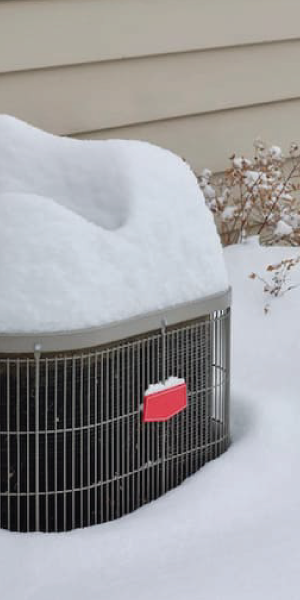When it comes to heating your home you have several options to pick from. For some people knowing which heating system to decide on can feel very overwhelming. But do not worry, here is some information about both that will help you determine which is the best fit for you.
HVAC:
The HVAC abbreviation stands for Heating, Ventilation, and Air Conditioning. HVAC refers to the sorts of methods used for transferring air between indoor and outdoor spaces, along with heating and cooling both private and large commercial buildings. The three main functions of an HVAC system are all related and connected, especially when giving off pleasant indoor air quality and heat comfort.
Your heating and AC system is usually one of the most complicated and elaborate systems in your home, but when it stops working you will know very soon! Within the system, there are nine different pieces to your HVAC organization that you may be familiar with; the air return, filter, exhaust vents, ducts, electrical elements, outdoor unit, compressor, coils, and blower. Now that you have found out that HVAC stands for heating, ventilation, and air conditioning, we know that these are the three main parts involved in the entire system.
The heating part typically relates to a heater or boiler. It includes a pipe system for the liquid carrying the heat or ductwork if you are working with a forced-air system. The purifying factor is either natural or man-applied and when it is forced it is more often than not used for air cleaning purposes as well. As some of us know the final element of an HVAC system is AC- air conditioning which is the complete opposite of heating. Its main focus is to take away the existing heat from the interior of the home and replace it with cooling and refreshing air.

Some people are confused on what the difference between HVAC and air conditioning is…Air conditioning is actually the last portion of what HVAC stands for, but they are commonly used both ways in referring to any type of heating or cooling device in your home. Think about HVAC as the comprehensive term and air conditioning as one small piece of the picture. These systems also have some pros and cons to go along with them.
The pros include: These units come packed with purifiers and humidifiers so you are suited no matter what the weather is, these are the most commonly used systems for homes that aren’t restricted to particular needs or environmental factors, most split systems are established to be noiseless, this means the only sound you should hear is the air being distributed inside, and they are nice when it comes to placement- you can have them in their own place but still feel the air.
Brock Heating and Air are pleased to be able to offer you their services as an HVAC contractor.
The cons include: Split systems are extremely expensive to install from the beginning, the long-term savings you see after time makes up for the initial cost, but it is still an investment requiring to be made and not everyone can afford it, It can take a while for a licensed HVAC person to come and install it in your home, it certainly has to be a professional who places it, if this is a summer needed job that’s an extra cost on top of it already! Split systems are also only more suitable for larger homes, and they need to be positioned within 30 feet of each other (since that’s the length of tube needed to connect them together.) This means if you live in an apartment building or a very tall building, this will not work out.
“Tuning Up” Your AC
You may see offers for an AC tune-up. What exactly is such a thing, and what does it cover? Let’s dive right in. Firstly, an AC tune-up includes several steps, such as: indoor and outdoor unit cleaning to remove debris and other such contaminants; checking of refrigerant levels; and varying mechanical components receive an
inspection to make certain that they work properly. Tune-ups may improve AC reliability in some situations if they catch a problem before it has a chance to become a major headache.
Furnace Heating:
A furnace, known as a heater or boiler in English, is a heating unit used to heat up an entire building. Furnaces are mainly handled as a huge part of a necessary heating system. The name comes from the Latin word Fornax, which also means “oven”. A furnace works by blowing heated air through ducts that deliver warm air to rooms throughout the house by air registers or grills. This variety of heating system is called a ducted warm-air or man-made warm-air circulation system. It can be run by electricity, natural gas, or fuel oil.
Since furnaces first came into being, they have used many various fuel sources. The first modern furnaces in homes and businesses needed to have wood or coal. Over the years, furnaces grew cleaner, purer, and more effective. Most furnaces we see these days use natural gas, electricity, or propane. There are also some pros and cons of furnace heating you may want to hear. Let’s start off and get the bad out of the way with the cons: electric furnaces can be very costly to run, Gas furnaces won’t have as long of a lifespan as an electric model does, gas furnaces also have a high risk of your wellbeing since they can easily cause fires, explosions, and carbon monoxide poisoning.
On the bright side, we also have some pros to look at: electric furnaces are inexpensive to install and have a really long lifespan, furnaces provide reliable heating in the bitter parts of winter, and they require much less maintenance than other heating options.
